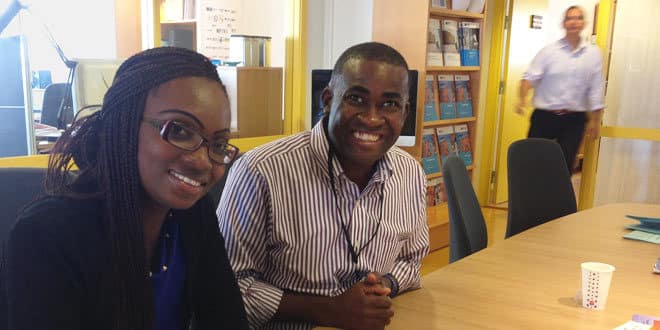Consultants are often used for short term projects in international development / aid. Typical projects include needs assessments, evaluations, and report writing.
A good consultant can be extremely valuable to your program. However, if a consultant is not hired and managed well the results can be equally disappointing (and very expensive!).
This how-to guide is for small to medium size organisations who want to hire a consultant. If you are working for a large organisation that has standard procurement procedures, then you should follow those instead.
Consider if you really need a consultant
Before you go looking for a consultant, the first question to ask is whether you really need one. Some common reasons for hiring a consultant are:
- You don’t have the technical skills for the project
- Your existing staff don’t have time for the project
- You want an independent or external opinion
- The donor says you have to
Before you go down the consultant path, think about whether it would be better to solve the problem internally first. If the problem is that you don’t have time, can you shift work around or prioritize it? If you’re hiring a consultant for their technical skills, would it be better to pay for an existing staff member to be trained?
Be realistic
People often have unrealistically high expectations about what consultants can achieve. Three common myths to avoid:
- “A consultant will tell us exactly what to do”: A consultant usually has lots of technical expertise, but they will only be in your organisation for a very short time. That is not long enough to understand all the history behind the organisation, the local context, or the complexities of your program. At best they will be able to provide you with some different actions that could be taken, along with pros and cons. But it’s very rare they will actually tell you exactly what to do.
- “If we have a consultant it will fix problem X”: If you have a long running problem in your organisation (e.g. your M&E system is not working well) then hiring a consultant is unlikely to fix it. The consultant may be able to make recommendations on fixing the problem, but it will be up to your employees and managers to implement the recommendations (a much more difficult and time consuming process).
- “A consultant will give a completely unbiased opinion”: If you want a consultant to give you an unbiased opinion, think carefully about who is paying them. If you are paying for an evaluation of your own program the consultant may be more reluctant to include negative feedback. Even if a donor is paying the consultant, they might be reluctant to criticise a program that the donor has chosen to fund.
Decide what type of consultant you need
There are lots of different types of consultants in international development / aid. The first thing you need to consider is what type of technical specialty they should have (e.g. economics, public health, logistics, etc).
Apart from their technical specialty, there are also some other common distinctions:
- Individual consultant VS consulting firm: Individual consultants tend to be cheaper and more flexible for small projects. Consulting firms have a wider range of resources and skills to draw upon, and can provide a team of consultants for large projects.
- Local experience VS international experience: Consultants that are based in the country you are working in will have a better understanding of the local context. Their travel costs are also lower. Consultants who work internationally may have less understanding of the local context, but more understanding of best practices and trends in other countries. Their travel (and accommodation) costs are a lot higher.
- In country VS remote work: Your project may need someone to be physically present in the office, or it may be possible to do the work remotely. Remote working expands the range of consultants you can use, but it also makes communication and understanding the local context more difficult.
Write the Terms of Reference
Before you advertise for a consultant, it’s important to write a detailed Terms of Reference (ToR). A ToR is a document that describes the purpose and structure of a project. The ToR can also be called a Project Charter or Project Document.
Your organisation or donor might have specific requirements for the ToR. As a minimum it should usually include:
- Background and rationale: Describe the background of the project and why you have decided to hire a consultant for it.
- Objectives: Describe the specific things that you hope to achieve with the project.
- Scope: Define what the project will cover. For example, if it is a needs assessment, which geographic areas will it cover? What types of needs? At the community or systems level?
- Approach and Methodology: Describe how the consultant should complete the project. For example, if it is an evaluation, do you require them to collect qualitative and quantitative data? Should they use interviews or focus groups? Which stakeholders should they engage with? If you are not sure about the best methodology you can leave it up to the consultant to propose one.
- Qualifications and Experience: List the minimum requirements for a consultant, including any specific degree qualifications or experience they should have.
- Deliverables and Schedule: List each item that the consultant must deliver (e.g. report, training session, workshop, etc) and the time frame in which it must be delivered.
- Budget and Payment: Describe how the budget should be structured, and any limitations (e.g. maximum budget). Identify anything that you will be paying for directly (e.g. travel, accommodation, stationary, etc). If there are any specific issues related to payment, such as currency or payment milestones, these should be specified here.
- Proposal and Submission: Explain how consultants should structure their proposal, when and where it should be submitted, and how it will be assessed.
For more resources on how to write a ToR see My M&E. The World Bank and Independent Evaluation Group have also published a manual on how to write a Terms of Reference for evaluations.
Advertise
Once you have finished your ToR you are ready to advertise. Where you advertise depends on the type of consultant you want to hire. If you want a consultant based locally then you should advertise in local newspapers or websites.
If you are looking for someone internationally then you can advertise in the job section of websites like Aidboard, Devex or ReliefWeb. The advertisement can be short, but it should include a link to the full ToR.
Assess the proposals
If your advertisement is successful you will now have proposals from consultants who are interested in the work. It is important to assess each proposal against a standard set of criteria to make sure you are being fair and transparent. It can be useful to have several people look at each proposal and compare your opinions of them.
Consultants should not just be judged based on their proposals. You also need to interview them and ask for samples of their past work. In some cases consultants may be reluctant to share previous work that is confidential. In that case, you can give them the option of bringing in a hard copy which they take back with them, or removing the name of the client.
You should also ask for contact details of their previous clients who had similar projects. Call these references to check how satisfied they were with the consultant.
Write a detailed contract
The next step is to write a detailed contract that will be signed by you and the consultant you have selected. Ideally you should get a lawyer in the country where you operate to draft the terms and conditions of the contract. If you will be hiring lots of consultants you can often use the same terms and conditions for all of them.
Some tips for writing the contract:
- Clearly identify the consultant’s responsibilities and your own responsibilities as the hiring organisation. For example, if the consultant will need you to provide particular data for the analysis this should be listed as one of your own responsibilities.
- Include the full ToR and consultant proposal attachments.
- Include the work plan and list of deliverables as an attachment.
- If possible, make it a fixed price contract, so that if the consultant spends more time than they expect on the work you don’t get charged extra.
- Specify who is responsible to pay tax, insurance, health and safety, and other regulatory requirements.
- List each point at which the consultant will be paid and how much they will be paid. Don’t agree to pay a large amount up-front. Only pay the majority of the amount once all deliverables have been submitted and reviewed.
- Describe what will happen if the consultant fails to implement any of their responsibilities (e.g. termination of the contract, withholding final payment, etc.), and what will happen if you fail to implement any of your responsibilities.
- If they are a full-time employee of another organisation (NGO, government, etc.) then include a statement that they have permission from their existing employer to do consulting work. In some countries it’s common for government employees to do consulting work when they are supposed to be at their regular duties. This can have a damaging effect on government services, so it’s important to make sure they have taken official annual leave on any days when they are working for you.
Manage them and provide feedback
Hiring a consultant doesn’t end when the contract is signed. Consultants are like other employees – their work needs to be managed, and you need to provide feedback. Schedule regular meetings with the consultant to see how they are going.
Review drafts of their work as they complete it, and provide immediate feedback. Don’t wait until the final report to tell them that you don’t like it. By that stage it’s too late for things to be fixed. If you find a good consultant, make sure you keep them happy by paying on time.
Photo by The EITI




